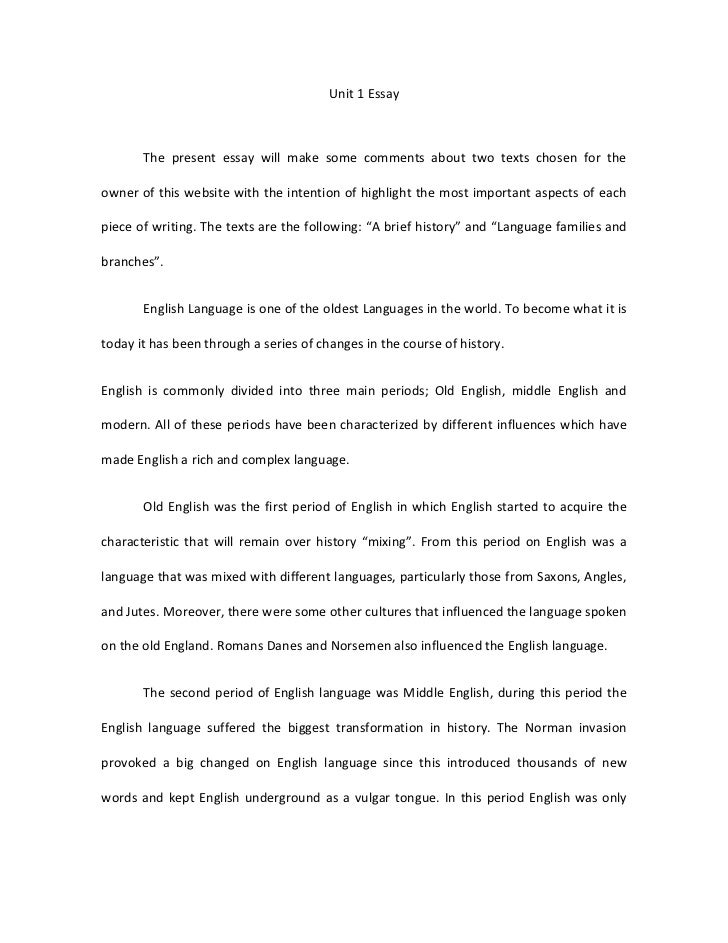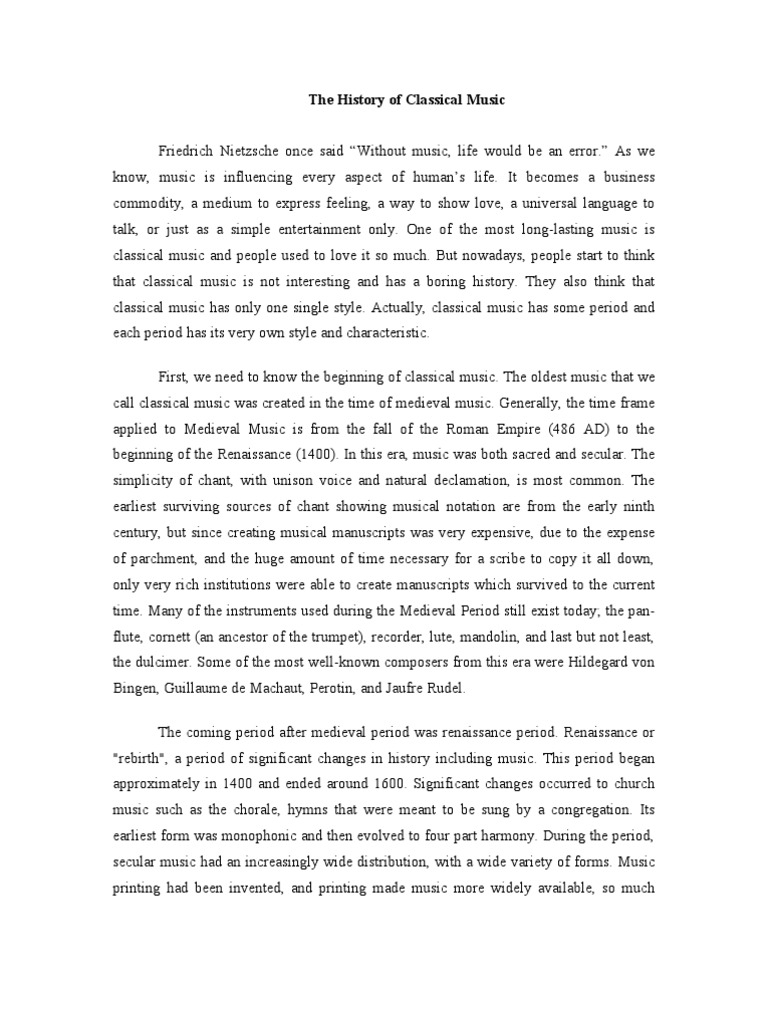
Navigation menu
· Since Montaigne adopted the term "essay" in the 16th century to describe his "attempts" at self-portrayal in prose, this slippery form has resisted any sort of precise, universal definition. But that won't an attempt to define the term in this brief article The English language was born thanks to the Germanic invaders who came to the British Isles from what is now the northwest of Germany and the Netherlands, (badly called Holland) which is a The history of the english language is split up into three periods that are normally called Old English (or Anglo-Saxon), Middle English and Modern English. Old English was the first form of blogger.com did not look or sound like the English we know today. The native English speakers nowadays would find it very difficult to understand Old English

Middle English (1100-1500)
The Industrial Revolution and the Rise of the British Empire during the 18th, 19th and early 20th-century saw the expansion of the English language. The advances and discoveries in science and technology during the Industrial Revolution saw a need for new words, phrases, and concepts to describe these ideas and inventions The history of the english language is split up into three periods that are normally called Old English (or Anglo-Saxon), Middle English and Modern English. Old English was the first form of blogger.com did not look or sound like the English we know today. The native English speakers nowadays would find it very difficult to understand Old English The English language was born thanks to the Germanic invaders who came to the British Isles from what is now the northwest of Germany and the Netherlands, (badly called Holland) which is a

Why Is It Called a Variant?
The Industrial Revolution and the Rise of the British Empire during the 18th, 19th and early 20th-century saw the expansion of the English language. The advances and discoveries in science and technology during the Industrial Revolution saw a need for new words, phrases, and concepts to describe these ideas and inventions The English language was born thanks to the Germanic invaders who came to the British Isles from what is now the northwest of Germany and the Netherlands, (badly called Holland) which is a · Since Montaigne adopted the term "essay" in the 16th century to describe his "attempts" at self-portrayal in prose, this slippery form has resisted any sort of precise, universal definition. But that won't an attempt to define the term in this brief article
“Importance of British English: Comparison b/w American English & British English”
· Since Montaigne adopted the term "essay" in the 16th century to describe his "attempts" at self-portrayal in prose, this slippery form has resisted any sort of precise, universal definition. But that won't an attempt to define the term in this brief article The history of the English language really started with the arrival of three Germanic tribes who invaded Britain during the 5th century AD. These tribes, the Angles, the Saxons and the Jutes, crossed the North Sea from what today is Denmark and northern Germany. At that time the inhabitants of Britain spoke a Celtic language The history of the english language is split up into three periods that are normally called Old English (or Anglo-Saxon), Middle English and Modern English. Old English was the first form of blogger.com did not look or sound like the English we know today. The native English speakers nowadays would find it very difficult to understand Old English

Old English (450-1100 AD)
The Industrial Revolution and the Rise of the British Empire during the 18th, 19th and early 20th-century saw the expansion of the English language. The advances and discoveries in science and technology during the Industrial Revolution saw a need for new words, phrases, and concepts to describe these ideas and inventions The History of the English Language In this paper I will discuss where and how the English language originated and how it has spread to become one of the most spoken languages in the world. Before I started my research on my topic of choice, my original hypothesis was that the English language was started by a whole assortment of Germanic tribes invading England The history of the english language is split up into three periods that are normally called Old English (or Anglo-Saxon), Middle English and Modern English. Old English was the first form of blogger.com did not look or sound like the English we know today. The native English speakers nowadays would find it very difficult to understand Old English
No comments:
Post a Comment